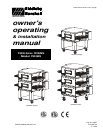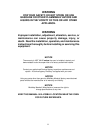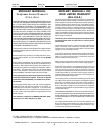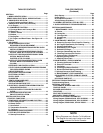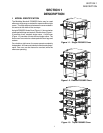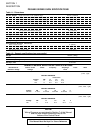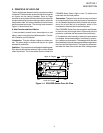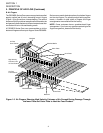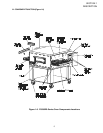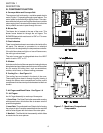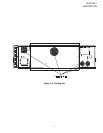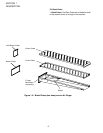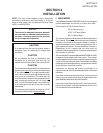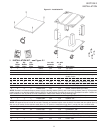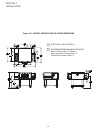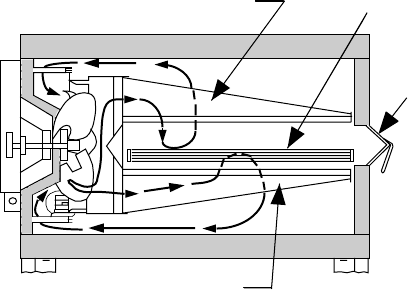
SECTION 1
DESCRIPTION
3
II. PRINCIPLE OF AIR FLOW
The fan-style blower draws air into the oven plenum where
it is heated. The blower then pushes the hot air through the
air fingers into the baking chamber. Each air finger
contains an inner plate and outer plate that form the hot air
into jets, distributing it across a conveyor belt on which the
food product rides. Air is then pulled back into the blower
and the process continues. The curving, black arrows of
Figure 1-4 show this air flow.
A. Heat Transfer and How It Works
1. Heat constantly moves from a warm object to a cold
object. Heat moves using three different paths: Conduc-
tion; Radiation; and Convection.
Conduction:
This path utilizes surface-to-surface con-
tact. The pizza dough in contact with the pan is a good
example of conduction.
Radiation:
This path has to do with objects radiating heat.
Dark objects absorb heat whereas light or shiny objects
reflect more heat. This is the reason that the inside of a
PS536ES-Series Oven is light in color: To reflect more
heat back onto the food product.
Convection:
This path has to do with moving a volume of
air. It explains why hot air rises and cooler air replaces hot
air. An industrial application of this principle is to incorpo-
rate a fan to force the hot air movement, which in turn
increases the heat transfer to the food product.
Each PS536ES-Series Oven has a large fan-style blower
to move the hot air through the air fingers and onto the
product to cook/bake the food product most efficiently.
2. Temperature is the intensity of heat at the point where
it is sensed. As discussed above, heat flows by conduc-
tion, radiation and convection. The speed at which the heat
flows is determined by the temperature difference between
the oven and the food product. The larger the difference,
the faster the heat flows to the item that is being baked.
Upper Air Fingers
Lower Air Fingers
Conveyor Belt(s)
Window
Figure 1-4. PS536ES-Series Oven Air Flow



